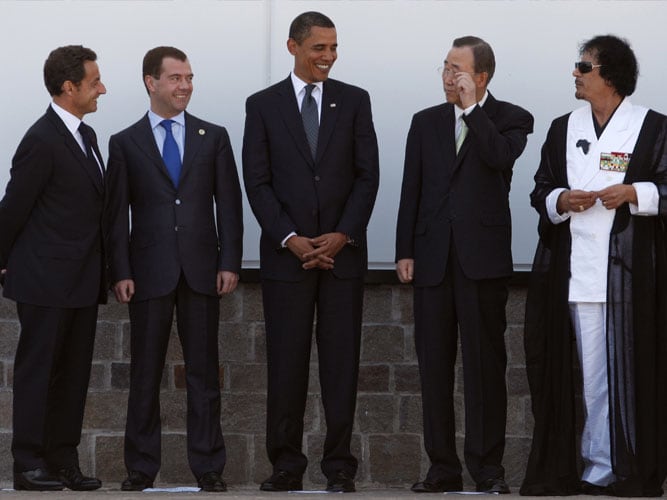
Europe, The Great Spectator
The financial crisis could leave Europe without a role on the world stage, says Romano Prodi, past president of the European Commission
There is no need to go into a detailed analysis of the origins of the current financial crisis, so I will simply remind you of the main points of it – the rise of American foreign debt, the excessive consumption of the US, the illusion of self-regulating markets, the absence of any traditional monetary system and control, and the lack of adaptation to the entrance of new countries into the world economy and world politics.
Politics and economics are strongly linked. If you think about the Iraqi war, this was the moment at which American power, at its peak, was put to the test. After that, we arrived at a more pluralistic political situation. The economic crisis has had similar consequences. Clearly, the United States is still the most powerful country in the world, but they can no longer control the economy and the politics alone. They need to play with other countries.
The G8 is over. I have been the most senior member of the G8, I have been in the G8 for ten years, and I have seen how it is impossible to have the G8 without China, without India, without Brazil. This is another consequence of the crisis. And in this big new play in which the major actors are the US and China, the problem is to find a role for Europe.
The role of China is simple. I had a long conversation a few weeks ago with the Chinese prime minister. He told me, “I am responsible. I am still buying American bonds. I don’t want to exploit our strength, to put the world economy in stress.” But then he told me, “I have $1,000 billion on my table. And $1,000 billion is not a small amount of money.” This is the reality. And in this picture, we have two protagonists; China and the US.
Then we have Europe which, in theory, is even stronger than both of them. Not only is Europe’s macroeconomic structure big with 500 million people, but Europe is number one in terms of GNP in the world, number one by far in terms of exports, it has inflation under control, and no public deficit of the dimension of the United States, its citizens are offered better social protection, and from the ideological point of view, more balanced ideas. But in Europe there is no shared governance, no common decision-making.
Initially, there was an illusion that the financial crisis was limited to the US, then to some European countries such as Ireland and Spain, where the financial bubble was overblown, and to some parts of the UK. Then there was an illusion that the new EU countries would be immune and would balance the European economy. In this climate, it was difficult to develop a common policy because everybody thought that his neighbour was in a worse situation. Now, the crisis has spread right across Europe. Now we have to take common decisions. Only by being united can we face the financial crisis and find the instruments to solve it. But there is no unity.
Europe is now a great spectator; not a great actor. Even if Europe has the strength and the potential to take a leading role, it is a spectator because of a lack of political union. Cleary a unified European voice would be much more authoritative in these times and could make proposals for the new economic order. The lack of a co-ordination instrument at this moment is the dominating problem.
So, this is the first reform needed in the long run. But now I think that we could do a reform in the short term. That is to increase the European budget – just for reserve, for intervention in case of speculation, of attack on some specific country’s currency. Because my fear is now that today it will be Lithuania or Latvia outside the Euro, and then it can be Ireland, and then Portugal, then Spain, then Italy. And then Europe will be in misery. So you need a common instrument.
The second common instrument is, in my opinion, the admission of Euro bonds. The Euro bond, in my opinion, is the easiest instrument for collective intervention, because, in case of an attack on Hungary or some other Euro member, you have a strong answer.
Then there is another long range instrument that, for me, is very simple but will decide the fate and the destiny of Europe, and that is the end of the need for unanimity. Think of the Irish Referendum; a few hundred thousand votes are blocking 500 million people. This is something that will devastate Europe.
If we do not make these changes, then Europe will be a spectator, an important, strong spectator in the world arena, but always a spectator.
Romano Prodi is a past president of the European Commission and a former prime minister of Italy. This article is an edited extract from a Distinguished Speaker Seminar he gave at the Saïd Business School on 4 March 2009. To hear an audio stream of the event, go to the University of Oxford iTunes channel.
[This article has been reproduced with permission from Said Business School, University of Oxford. The article originally appeared in the School e-magazine, THEWORLD@OxfordSaid. http://www.sbs.ox.ac.uk]





